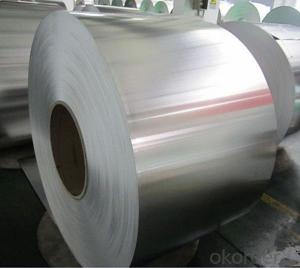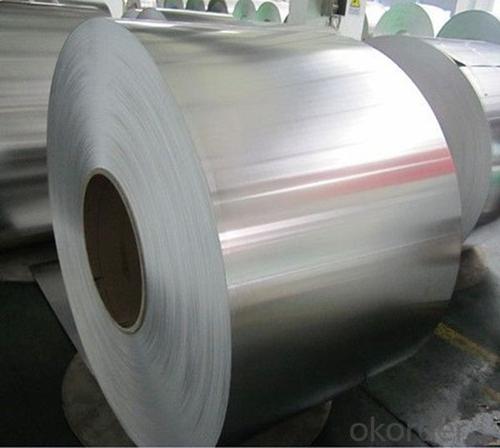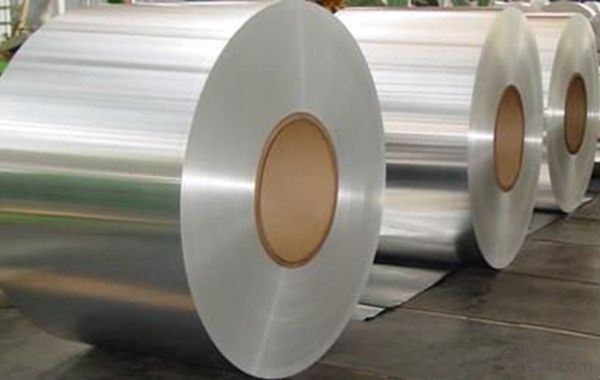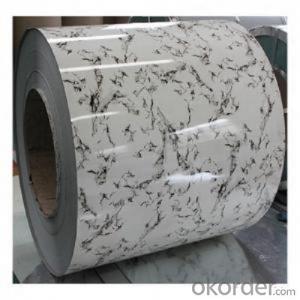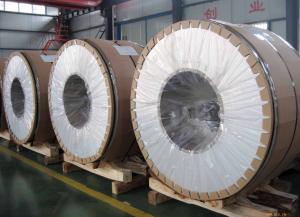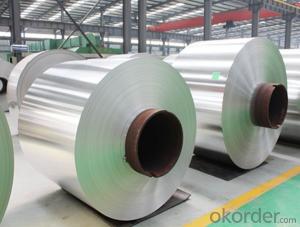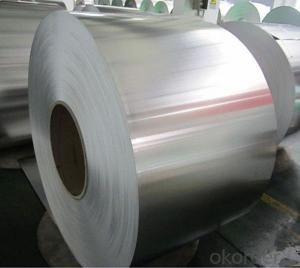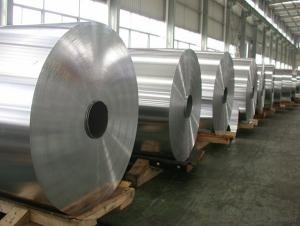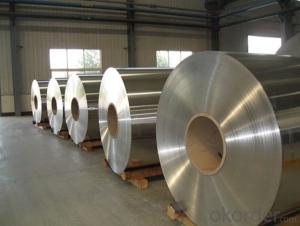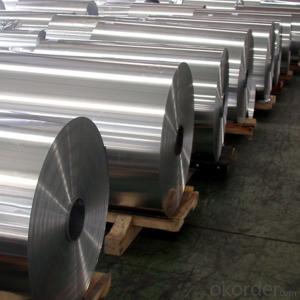Mill Finish Aluminum Coil Metal 5005 China Factory Direct Supply for Lowes
- Loading Port:
- Shanghai
- Payment Terms:
- TT OR LC
- Min Order Qty:
- 5 m.t.
- Supply Capability:
- 1000 m.t./month
OKorder Service Pledge
OKorder Financial Service
You Might Also Like
Specification
1. Specification of Mill Finish Aluminum 5005 China Factory Direct Supply
Alloy Number | AA5XXX |
Temper | H12, H14, H16, H18, H22, H24, H26, H32, HO, F |
Thickness | 0.1mm – 500mm |
Width | 10mm- 2200mm |
Standard | GB/T3880-2006, ASTM, ISO, EU standard |
2. Application of Mill Finish Aluminum 5005 China Factory Direct Supply
(1).Interior: wall cladding, ceilings, bathrooms, kitchens and balconies, shutters, doors...
(2).Exterior: wall cladding, facades, roofing, canopies, tunnels,column covers , renovations...
(3).Advertisement: display platforms, signboards, fascia, shop fronts...
3. Feature of Mill Finish Aluminum 5005 China Factory Direct Supply
Surfact Quality :
Be free from Oil Stain, Dent, Inclusion, Scratches, Stain, Oxide Dicoloration, Breaks, Corrosion, Roll Marks, Dirt Streaks and other defect which will interfere with use,
Mechenical Property:
Chemical Composite and Mechanical Property
4. Certificate:
SGS and ROHS(if client request, paid by client), MTC(plant provided), Certificate of Origin(FORM A, FORM E, CO), Bureau Veritas and SGS (if client request, paid by client), CIQS certificate
5. Image of Mill Finish Aluminum 5005 China Factory Direct Supply
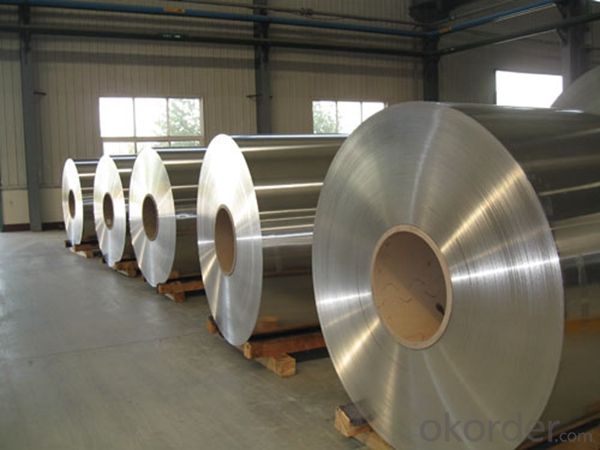
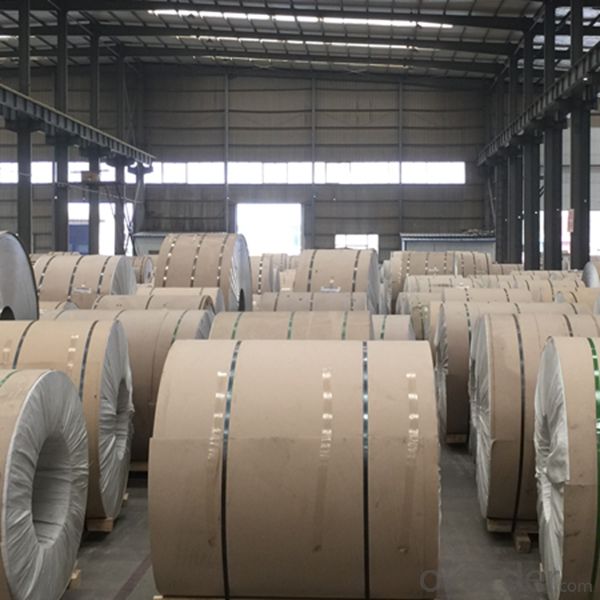
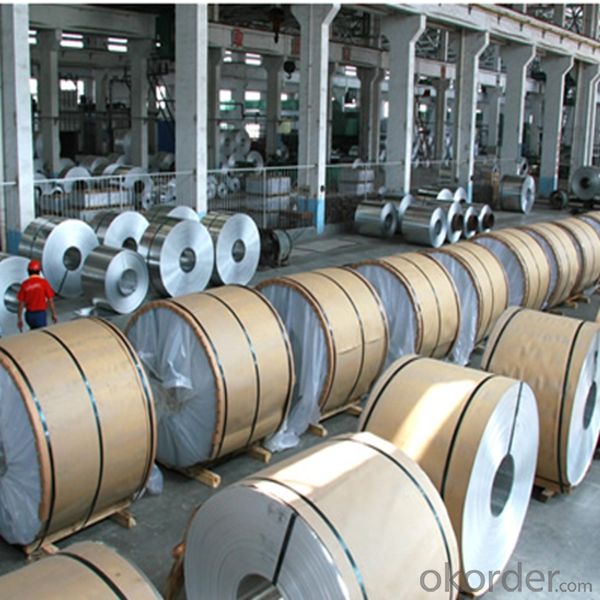
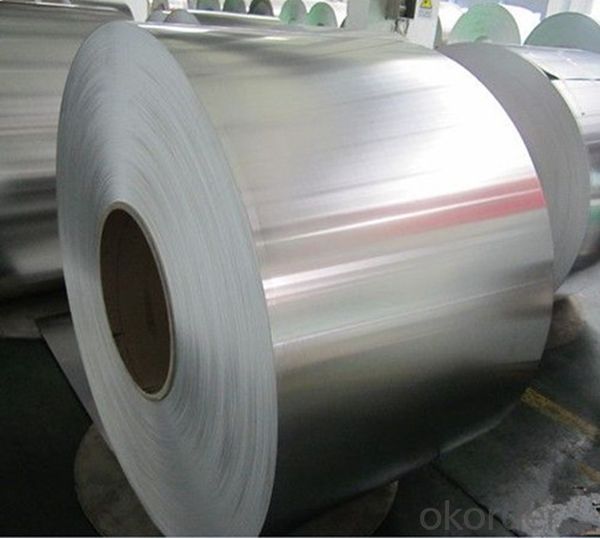
6. Package and shipping of Mill Finish Aluminum 5005 China Factory Direct Supply
First, plastic cloth with drying agent inside; Second, Pearl Wool ; Third, wooden cases with dry agent , fumigation wooden pallets, aluminum surface could cover blue PVC film
7. FAQ
1) What is the delivery time?
Dpends on actual order, around 20 to 35 days
2)What is the QC system:
We have QC staff of 20 persons and advanced equipment, each production is with MTC traced from Aluminum ingot lot.
3) What market do you mainly sell to?
Australia, America, Asia, Middle East, Western Europe, Africa etc
- Q: Are aluminum coils resistant to abrasion?
- Yes, aluminum coils are generally resistant to abrasion.
- Q: Can aluminum coils be used in the production of automotive body panels?
- Yes, aluminum coils can be used in the production of automotive body panels. Aluminum is a lightweight and durable material that offers excellent corrosion resistance, making it ideal for automotive applications. The use of aluminum coils helps to reduce the weight of the vehicle, resulting in improved fuel efficiency and overall performance.
- Q: What are the common installation methods for aluminum coils?
- Aluminum coils can be installed using various methods, each with its own advantages and applications. 1. Direct Attachment: To install aluminum coils, one can directly attach them to the desired surface, like a wall or roof. The specific method of attachment, whether it's screws, nails, or adhesive, depends on the application and surface condition. This method is commonly used for exterior applications such as siding and roofing. 2. Coil Stock Installation: Another method involves cutting the aluminum coil into smaller pieces known as coil stock, which are then installed individually. This method is ideal for projects that require a customized fit, such as wrapping window frames or creating trim pieces. Precise measurement and cutting are crucial for a perfect fit. 3. Coil Over Existing Material: In certain cases, aluminum coils can be installed directly over existing materials like old siding or roofing. This cost-effective method allows for updating the appearance of a building without the need for complete removal and replacement. It also saves time and labor compared to other methods. 4. Coil Cladding: Coil cladding is a popular installation method where the aluminum coil is wrapped around an existing structure, such as a column or beam. This provides both protection and aesthetic appeal to the structure. In architectural applications, coil cladding is often used to enhance the appearance of buildings and add a layer of protection to structural elements. It's important to consider the specific requirements of the application, surface condition, and desired outcome when choosing an installation method for aluminum coils. Consulting a professional or following manufacturer guidelines is recommended to ensure proper installation, maximize longevity, and maintain optimal performance of the aluminum coils.
- Q: In my line of work I see aluminum ground lugs, bonding nuts and straps and also neutral bars eat copper up, especially when exposed to the elements. I know how galvanic reaction works between elements under current load, but my question is why do aluminum and copper seem to hate each other more than any other? And, why would they still be required in usage together per NEC code?
- that's a single alternative reaction. The aluminum and the copper swap places, yielding copper and aluminum sulfate. Please notice: the 1st answer describes a chemical equation with nitrate, no longer sulfate. otherwise, this is the perfect format.
- Q: Can aluminum coils be anodized?
- Indeed, it is possible to anodize aluminum coils. Anodizing, an electrochemical technique, enhances the existing oxide layer on the aluminum's surface, rendering it denser, sturdier, and more resistant to corrosion. This particular process finds widespread usage in aluminum sheets, plates, and coils. Anodizing can be effectively employed on both flat and shaped aluminum coils, imparting them with a plethora of appealing hues and finishes. Furthermore, the anodized coating significantly improves the aluminum's capacity to accommodate paint and adhesives, thereby rendering it a highly sought-after option for numerous applications, including architectural cladding, automotive trim, and electronic components.
- Q: Can aluminum coils be used in the production of aluminum ceilings?
- Yes, aluminum coils can be used in the production of aluminum ceilings. Aluminum coils are commonly used in the manufacturing of various aluminum products, including aluminum ceilings. These coils are typically made from high-quality aluminum alloy, which is then processed and formed into coils of the desired thickness and width. The coils can be easily cut and shaped into the desired dimensions for the ceiling panels. Additionally, aluminum is a lightweight, durable, and corrosion-resistant material, making it an ideal choice for ceilings. It is also highly versatile, allowing for a variety of finishes and designs to be applied to the aluminum surface, further enhancing the aesthetic appeal of aluminum ceilings. Overall, aluminum coils are a key component in the production of aluminum ceilings, providing a reliable and long-lasting material for these types of applications.
- Q: How are aluminum coils transported and delivered?
- Aluminum coils are typically transported and delivered using specialized transport vehicles equipped with coil racks or cradles that securely hold the coils in place. These vehicles can be trucks, trains, or ships, depending on the distance and mode of transportation. The coils are usually loaded onto the transport vehicle using cranes or forklifts, ensuring proper handling and minimizing damage. Once at the delivery destination, the coils are carefully unloaded using similar equipment and delivered to their final destination, such as a manufacturing facility or warehouse.
- Q: Can aluminum coils be used in heat sinks?
- Yes, aluminum coils can be used in heat sinks. Aluminum is a popular choice for heat sinks due to its excellent thermal conductivity. Heat sinks are designed to dissipate heat from electronic components and other devices to prevent overheating. The use of aluminum coils in heat sinks allows for increased surface area, which enhances heat dissipation. The coils can be shaped and arranged in various configurations to optimize cooling efficiency. Additionally, aluminum is lightweight, corrosion-resistant, and cost-effective, making it a practical choice for heat sink applications.
- Q: What are the typical lead times for aluminum coil orders?
- The typical lead times for aluminum coil orders can vary depending on the supplier and their current production capacity. However, it is common to expect lead times ranging from a few weeks to a couple of months for standard aluminum coil orders. It is advisable to contact the specific supplier for more accurate and up-to-date lead time information.
- Q: Can aluminum coils be used in the manufacturing of furniture?
- Indeed, furniture manufacturing can incorporate aluminum coils, which boast attributes of being both lightweight and durable. Consequently, this material is highly suitable for furniture production. Notably, it is frequently employed in the crafting of outdoor furniture due to its exceptional resistance against rust and corrosion. The malleability of aluminum coils permits the creation of furniture pieces in a diverse range of shapes and sizes. Furthermore, aluminum can be effortlessly tailored and adorned with a variety of coatings or paint, enabling it to harmonize with any desired aesthetic. In summary, opting for aluminum coils in furniture manufacturing proves to be a versatile and pragmatic decision.
Send your message to us
Mill Finish Aluminum Coil Metal 5005 China Factory Direct Supply for Lowes
- Loading Port:
- Shanghai
- Payment Terms:
- TT OR LC
- Min Order Qty:
- 5 m.t.
- Supply Capability:
- 1000 m.t./month
OKorder Service Pledge
OKorder Financial Service
Similar products
Hot products
Hot Searches
Related keywords
